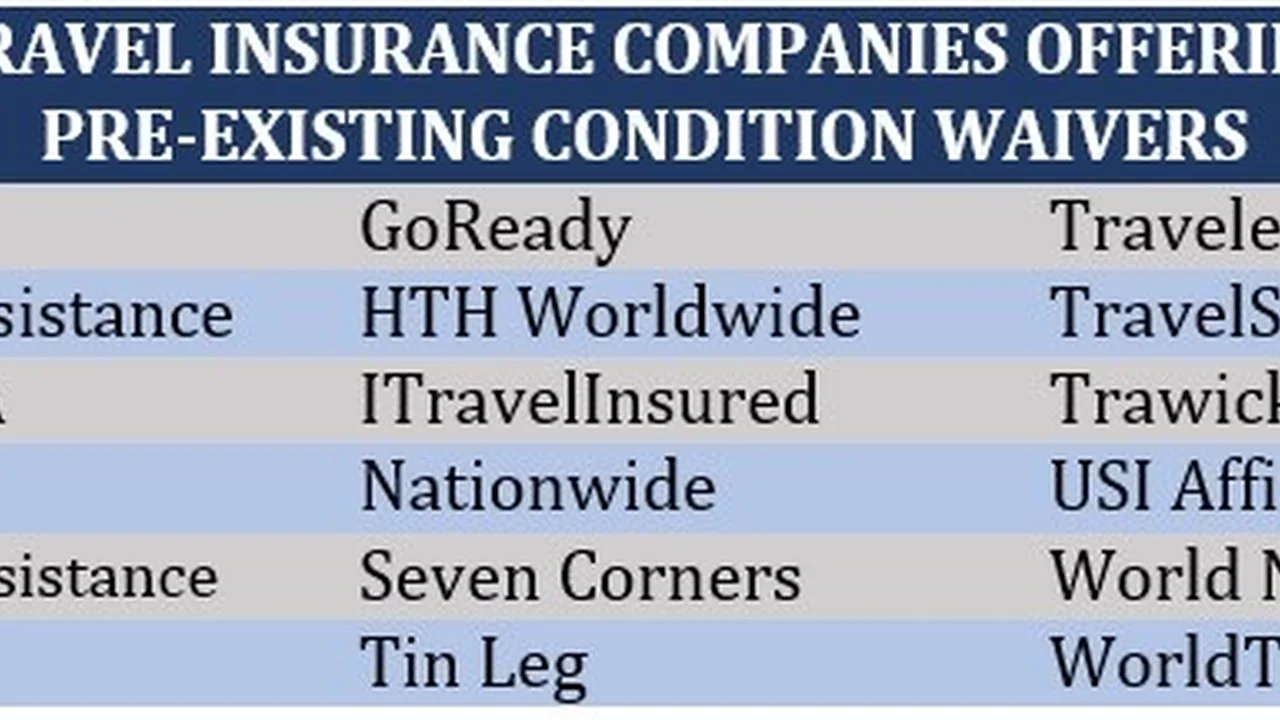Senior Traveler's Pet Emergency: Travel Insurance Support

Senior traveling with pets? Learn how travel insurance covered the expenses and provided support.
Introduction Pet Travel Insurance and Senior Travelers
Traveling with a furry friend can be one of life's greatest joys, especially for seniors. The companionship, the shared adventures, and the unconditional love pets offer can make any journey more fulfilling. However, traveling with pets also introduces a unique set of challenges, from ensuring their comfort and safety to managing unexpected health issues. That's where pet travel insurance comes in. It's designed to provide financial protection and peace of mind, allowing you to focus on creating lasting memories with your beloved animal companion. Let's dive into a real-life scenario to understand why pet travel insurance can be a lifesaver for senior travelers.
The Scenario A Senior's Pet Emergency on Vacation
Meet Eleanor, a 72-year-old retiree from Florida, who loves to travel with her golden retriever, Buddy. Buddy has been her loyal companion for the past ten years, and Eleanor couldn't imagine leaving him behind on her annual cross-country road trips. Last year, while exploring the scenic landscapes of Montana, Buddy suddenly fell ill. He started vomiting, became lethargic, and refused to eat. Eleanor was miles away from her regular vet and had no idea where to turn. Panic started to set in as she worried about Buddy's well-being and the potential cost of emergency veterinary care.
The Unexpected Expense The Cost of Veterinary Care
Eleanor managed to find a local veterinary clinic, and after a thorough examination, Buddy was diagnosed with a severe gastrointestinal infection. The vet recommended immediate treatment, including IV fluids, medication, and overnight monitoring. The total cost of the treatment was estimated to be around $2,500. Eleanor was shocked. She hadn't anticipated such a large expense, especially since she was already on a fixed budget. Luckily, Eleanor had purchased pet travel insurance before embarking on her trip.
Pet Travel Insurance To The Rescue Financial Assistance and Peace of Mind
Eleanor contacted her pet travel insurance provider, explained the situation, and provided the necessary documentation. To her relief, the insurance company approved her claim and covered a significant portion of Buddy's veterinary expenses. Eleanor was able to focus on Buddy's recovery without the added stress of financial burden. Thanks to pet travel insurance, Buddy received the care he needed, and Eleanor was able to continue her road trip with peace of mind.
Why Pet Travel Insurance is Essential for Senior Travelers
Eleanor's story highlights the importance of pet travel insurance for senior travelers. Here are some key reasons why you should consider investing in this type of coverage:
- Unexpected Veterinary Expenses: Pets can get sick or injured while traveling, just like humans. Veterinary care can be expensive, especially in unfamiliar locations. Pet travel insurance can help cover the costs of emergency treatment, hospitalization, and medication.
- Coverage for Pre-Existing Conditions: Some pet travel insurance policies offer coverage for pre-existing conditions, which is particularly important for senior pets who may have age-related health issues.
- Trip Cancellation and Interruption: If your pet gets sick or injured before your trip, you may need to cancel or postpone your travel plans. Pet travel insurance can reimburse you for non-refundable expenses, such as flights and hotel reservations.
- Lost or Stolen Pets: Losing a pet while traveling can be a traumatic experience. Pet travel insurance can help cover the costs of advertising, rewards, and other expenses associated with finding a lost or stolen pet.
- Emergency Medical Evacuation: In severe cases, your pet may need to be evacuated to a specialized veterinary hospital. Pet travel insurance can cover the costs of emergency medical evacuation, ensuring your pet receives the best possible care.
Choosing the Right Pet Travel Insurance Policy for Seniors
When choosing a pet travel insurance policy, it's essential to consider your specific needs and budget. Here are some factors to keep in mind:
- Coverage Limits: Make sure the policy offers adequate coverage limits for veterinary expenses, trip cancellation, and other potential losses.
- Deductibles: Choose a deductible that you're comfortable paying out-of-pocket. A higher deductible will typically result in a lower premium.
- Exclusions: Carefully review the policy exclusions to understand what's not covered. Some policies may exclude certain breeds, pre-existing conditions, or activities.
- Waiting Periods: Be aware of any waiting periods before coverage takes effect. Some policies may have waiting periods for certain conditions or treatments.
- Customer Reviews: Read customer reviews to get an idea of the insurance company's reputation and customer service.
Top Pet Travel Insurance Providers for Seniors
Here are some of the top pet travel insurance providers that offer comprehensive coverage and excellent customer service:
- Trupanion: Trupanion is known for its comprehensive coverage and simple claims process. They offer unlimited annual payouts and cover 90% of eligible veterinary expenses.
- Embrace Pet Insurance: Embrace offers customizable policies with a variety of coverage options. They cover pre-existing conditions (after a waiting period) and offer a diminishing deductible.
- Petplan: Petplan is a popular choice for its affordable premiums and comprehensive coverage. They offer a variety of deductible and reimbursement options.
- Nationwide Pet Insurance: Nationwide offers a range of pet insurance plans, including wellness coverage and coverage for exotic pets.
- ASPCA Pet Health Insurance: ASPCA Pet Health Insurance offers comprehensive coverage and a variety of deductible and reimbursement options. They also offer a multi-pet discount.
Comparing Specific Pet Travel Insurance Products
Let's take a closer look at some specific pet travel insurance products and compare their features, coverage, and costs:
Trupanion Pet Insurance
- Coverage: Trupanion offers unlimited annual payouts and covers 90% of eligible veterinary expenses. They don't have annual limits or per-incident deductibles.
- Pros: Comprehensive coverage, simple claims process, no annual limits.
- Cons: Higher premiums compared to other providers.
- Typical Cost: Premiums vary depending on your pet's breed, age, and location, but you can expect to pay around $50-$100 per month for a senior dog.
- Best For: Senior travelers who want the most comprehensive coverage and are willing to pay a higher premium.
- Example Scenario: Imagine Buddy needed surgery for a torn ligament while traveling. Trupanion would cover 90% of the surgery costs, which could easily amount to thousands of dollars.
Embrace Pet Insurance
- Coverage: Embrace offers customizable policies with a variety of coverage options. They cover pre-existing conditions (after a waiting period) and offer a diminishing deductible.
- Pros: Customizable policies, coverage for pre-existing conditions, diminishing deductible.
- Cons: Waiting periods for certain conditions.
- Typical Cost: Premiums vary depending on your pet's breed, age, and location, but you can expect to pay around $40-$80 per month for a senior dog.
- Best For: Senior travelers who want a customizable policy and coverage for pre-existing conditions.
- Example Scenario: If Buddy has arthritis, Embrace could cover treatment costs after the waiting period, helping Eleanor manage his pain and improve his quality of life while traveling.
Petplan Pet Insurance
- Coverage: Petplan offers affordable premiums and comprehensive coverage. They offer a variety of deductible and reimbursement options.
- Pros: Affordable premiums, comprehensive coverage, variety of deductible and reimbursement options.
- Cons: May not cover pre-existing conditions.
- Typical Cost: Premiums vary depending on your pet's breed, age, and location, but you can expect to pay around $30-$70 per month for a senior dog.
- Best For: Senior travelers who want affordable coverage and don't have significant pre-existing conditions.
- Example Scenario: If Buddy develops a sudden infection while traveling, Petplan would cover the costs of diagnosis and treatment, helping Eleanor avoid a large veterinary bill.
Using Pet Travel Insurance in Different Travel Scenarios
Pet travel insurance can be beneficial in a variety of travel scenarios. Here are a few examples:
- Road Trips: If you're planning a road trip with your pet, pet travel insurance can cover veterinary expenses, trip cancellation, and lost pet expenses.
- Air Travel: If you're flying with your pet, pet travel insurance can cover veterinary expenses, trip cancellation, and lost pet expenses. Some policies also offer coverage for pet boarding fees if your flight is delayed or canceled.
- International Travel: If you're traveling internationally with your pet, pet travel insurance can cover veterinary expenses, emergency medical evacuation, and quarantine costs.
- Cruises: While not all cruises allow pets, if you find one that does, pet travel insurance can cover veterinary expenses, trip cancellation, and lost pet expenses.
Tips for Filing a Pet Travel Insurance Claim
Filing a pet travel insurance claim can be a straightforward process. Here are some tips to ensure your claim is processed quickly and efficiently:
- Review Your Policy: Before filing a claim, review your policy to understand what's covered and what's not.
- Gather Documentation: Gather all necessary documentation, including veterinary records, receipts, and travel itineraries.
- File Promptly: File your claim as soon as possible after the incident occurs.
- Be Honest and Accurate: Provide accurate and honest information on your claim form.
- Follow Up: Follow up with the insurance company to check on the status of your claim.
The Importance of Planning Ahead
Traveling with pets requires careful planning, especially for seniors. Here are some tips to help you prepare for your trip:
- Visit Your Vet: Before traveling, take your pet to the vet for a checkup and vaccinations.
- Pack a Pet Travel Kit: Pack a pet travel kit with food, water, medications, and other essentials.
- Microchip Your Pet: Microchip your pet and ensure your contact information is up-to-date.
- Research Pet-Friendly Accommodations: Research pet-friendly accommodations and make reservations in advance.
- Plan Your Route: Plan your route and identify pet-friendly rest stops and attractions.
Final Thoughts Preparing for Pet Travel
Traveling with a pet can be a rewarding experience, especially for seniors. By investing in pet travel insurance and planning ahead, you can protect your furry friend and enjoy a stress-free vacation. Eleanor's story is a reminder that unexpected events can happen, but with the right preparation, you can handle any situation with confidence and peace of mind. So, pack your bags, grab your pet's leash, and get ready for an unforgettable adventure!
:max_bytes(150000):strip_icc()/277019-baked-pork-chops-with-cream-of-mushroom-soup-DDMFS-beauty-4x3-BG-7505-5762b731cf30447d9cbbbbbf387beafa.jpg)



.webp)


